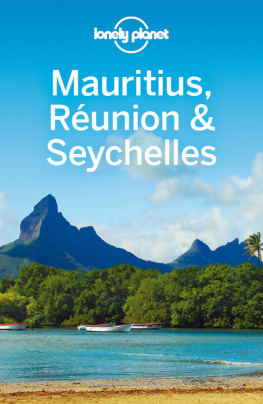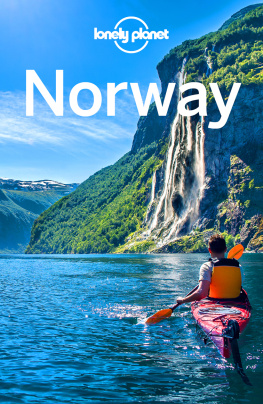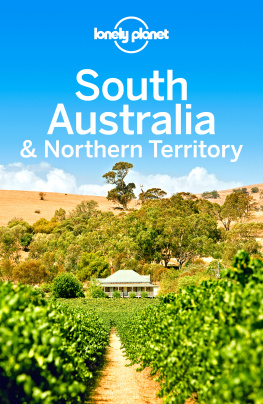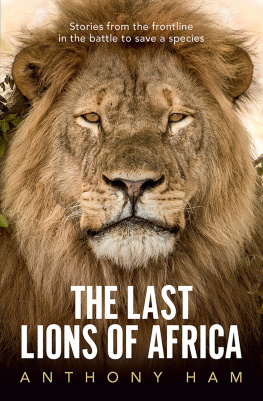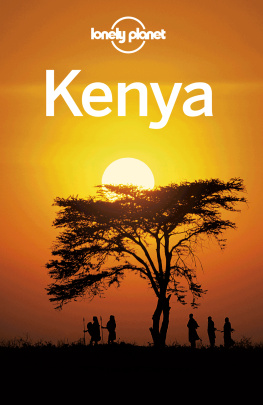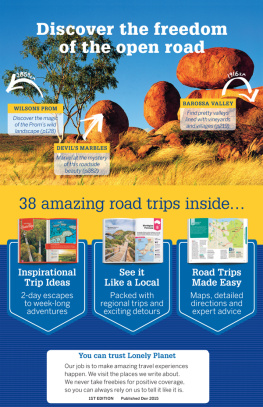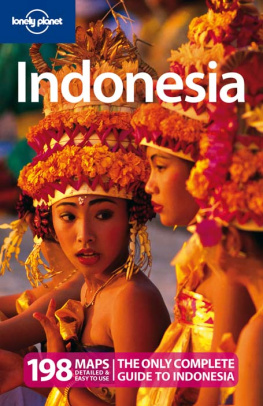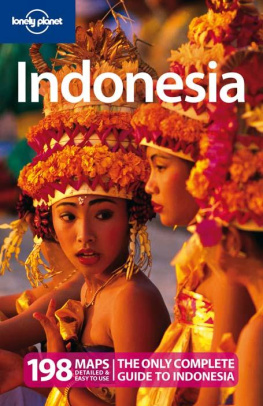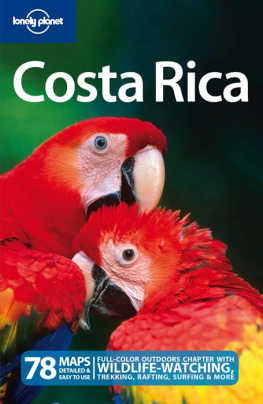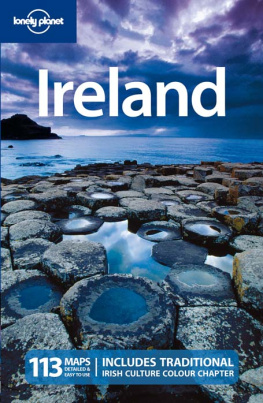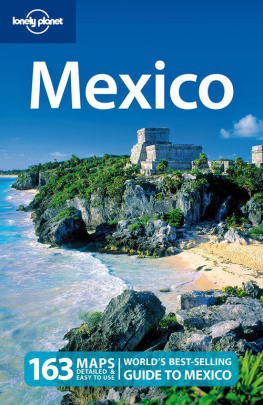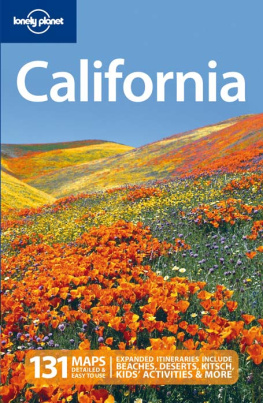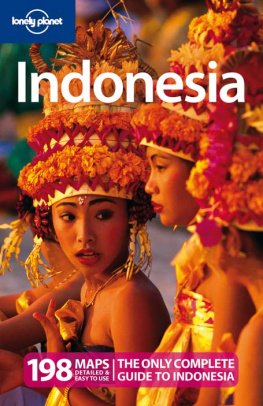Destination Africa
Theres nowhere on earth quite like Africa. Yes, to speak of Africa as a single entity can be profoundly misleading Africa is the unwieldy sum total of around 50 countries, tens of thousands of ethnic groups, and landscapes that span the full spectrum of the natural worlds repertoire. But if we could distil Africas appeal to its essence it would be this: wherever you go, and more than any other continent, human and natural history come together in Africa with rare power. This is a place where all the worlds beauty and tragedy seem to be concentrated in one (albeit vast) corner of the earth, a diverse continent that is soulful, deeply troubled and profoundly uplifting all at once. In short, theres something special about Africa, and whether youre a hardened African veteran or a wide-eyed first timer, this is a continent that cannot fail to get under your skin.
FAST FACTS
Population: 1 billion
Most populous country: Nigeria (146 million)
Total area: 30.2 million sq km
Largest/smallest country: Sudan/Gambia
Proportion of population living in rural areas: around 60%
Number of African countries ranked among the lowest 24 in the UNs 2009 Human Development Index: 22
Highest life expectancy at birth: Libya and Tunisia (73.8 years)
Lowest life expectancy at birth: Zambia (44.5 years)
Countries with highest proportion of national parks and other protected areas: Zambia (41.8%) and Tanzania (38.4%)
Proportion of Africa covered by deserts/rainforests: 60%/20%
The canvas upon which Africas epic story is written is itself astonishing, and reason enough to visit. From the tropical rainforests of Central Africa to the endless dune scapes and waterless tracts of the Sahara, from the signature savannah of the east to jagged mountains and green-tinged highlands all across the continent, Africa has few peers when it comes to natural beauty. It is sunset on the Serengeti, and the sunrise at Assekrem, deep in the Algerian Sahara, whose name means the End of the World; it is scaling the Mountains of the Moon in Uganda, and standing where sand dunes meet the sea in Namibia; or it is the deserted palm-fringed beaches of Mozambique, So Tom & Prncipe, Guinea-Bissau and Sierra Leone, and a slow boat journey through the blissful solitude of Botswanas Okavango Delta. Exploring these stirring wilderness areas could easily occupy a lifetime and you would still scarcely have touched the surface.
Inhabiting these wilderness areas, and often living just beyond the flimsy fence of the African farmer, Africas wildlife brings these landscapes to life, a tangible and sometimes profoundly mysterious presence that adds so much personality to the wild. The list of Africas megafauna reads like a whos who of the animal kingdom, and so many of the great beasts, whose existence we learned about as children, call Africa home. Elephants, gorillas, lions, leopards, cheetahs, giraffes, zebras, rhinos, hippos and chimpanzees all roam free in Africa, often in massive herds, but just as often as small, precarious outposts in a sea of humanity that cling to life as wars rage around them. Going on an African safari may be something of a travellers clich, but were yet to find a traveller who has watched the wildlife world in motion in the Masai Mara, stumbled upon the paradise that is the Ngorongoro Crater, or communed with gorillas in Ugandas Bwindi Impenetrable Forest, and has not been reduced to an ecstatic state of childlike wonder.
But theres so much more to Africa than natures considerable bounty. On this continent where human beings first came into existence, customs, traditions and ancient rites tie Africans to generations past and to the collective memory of myriad people. In many rural areas, it can feel as though the modern world might never have happened, and old ways of doing things a certain grace and civility, hospitality and a community spirit survive. Welcome to Old Africa.
And yet, even as the past retains its hold over the lives of many Africans, just as many have embraced the future, bringing creativity and sophistication to the continents cities and urban centres. Sometimes this New Africa is expressed in a restless search for solutions to the continents problems, or in an eagerness to break free of the restrictive chains of the past. But just as often, modern Africans are taking all that is new and fusing it onto the best of the old. Leading the way have been Africas endlessly talented musicians, who give voice in equal measure to a continent yearning for a return to the past and for a better future the fruits of their labours provide a constantly evolving playlist to the continents diversity and an unforgettable soundtrack to your African journey. The results can be stunning and are always unmistakeably African.
For all this talk of past and future, theres no denying that the African present is plagued with difficulties that read like a catalogue of human and environmental calamity. Corruption is widespread (though by no means universal) among Africas rulers, diseases kill Africans at an unconscionable rate, wars and lawlessness continue to blight the lives of millions, and the continents staggering wealth of natural resources has more often meant misery than a better life for people from Nigeria to Congo. Such problems are exacerbated by deserts eating away at the land and livelihoods of millions, and by deforestation, drought, loss of biodiversity and land degradation. Little wonder, then, that Africa remains the poorest continent on earth.
At the same time, Africa has an impressive array of good news stories and most of them are, by their very nature, rarely considered newsworthy by the international media. Democracy and good governance have taken hold from Benin to Botswana and countries formerly at war Sierra Leone, Liberia, Cte dIvoire and Angola for example have taken the first tentative steps along the road to peace and stability. Even Zimbabwe, that exemplification of African potential gone to ruin, has new, if fragile, reasons to hope. When it comes to environmental issues, the continents problems can seem overwhelming, but governments, as well as local and international conservation groups, have had some stunning successes, from the stabilisation of once-threatened elephant, rhino and primate populations, to Gabons ground-breaking creation of a slew of national parks, which protect some of Central Africas most pristine wilderness. And then there are the millions of small but significant successes engineered daily by Africans themselves. Whether its an overworked mother who puts food on the table for her children against the odds or a community-based conservation program that puts power and prosperity into the hands of a local community, these are the real African success stories.
And one final thing: travel African-style can be hard travel. While you can see Africa in five-star luxury, the African road can be a long and dusty one, particularly in areas less trammelled by tourists. In such places, and even in countries where youd least expect it, infrastructure is often poor or nonexistent, transport is slow and uncomfortable, and the frustrations of African bureaucracy and border-crossing politics can confound even the best-laid plans. But in Africa, the journey in all its complexity will put you in close proximity with Africans who live with such difficulties on a daily basis. We can think of no people on earth with whom wed rather share the ride. And when, in spite of it all, they smile and begin to dance, youll find it hard to resist joining in. Its at moments like these that you begin to understand why so many travellers are passionate about Africa: once Africa has you in its thrall, it very rarely lets go.


